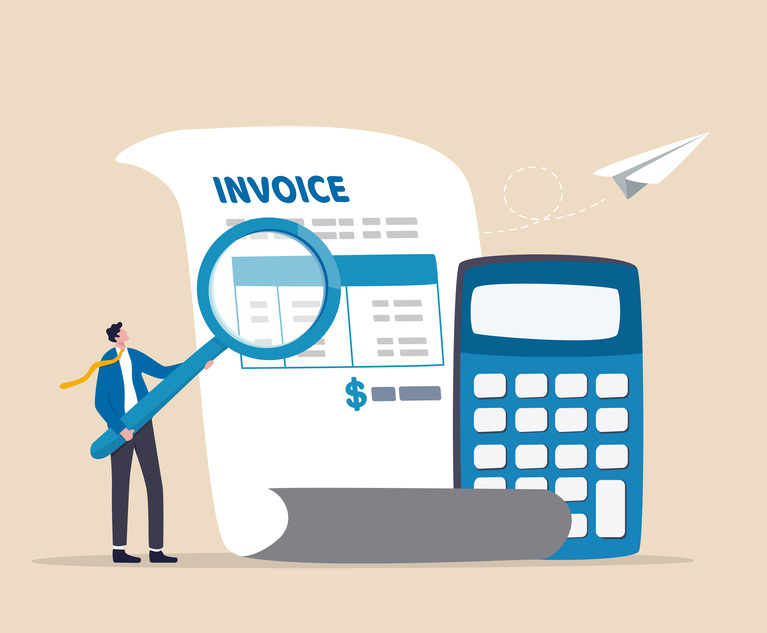EDITORS NOTE: This is an excerpt from Lean Adviser Legal, a new program from Law.com with more than 150 lessons, tools and videos to help lawyers deliver better outcomes, improve efficiency and boost client satisfaction. Learn more.
In the Lean Law Program, the Execution Stage has three components—looking for what matters, working on those aspects in a lean way, and creative problem solving. These three components are akin to using the eyes, then the hands and then the imagination. At least that analogy makes sense to me, and I like to think it has a Japanese resonance about it.
So in this lesson we’ll look at the first of those components, which I call Just What Matters.
The Planning Stage includes an initial investigation component. Whether the project is a non-contentious transaction or trial work, much of the lawyer’s work is investigation and analysis. Investigate, analyze, repeat. That’s not a bad summation of what we all do for a living. This continues into the Execution Stage, and beyond to the stages of Monitoring and ultimately to the Improvement Stage. Investigate, analyze, repeat.
Lawyers, by convention, are used to reading everything. It is well understood and expected, notorious even. You assume that if you send a sweltering pile of dusty documents to your lawyer it would be read from cover to cover. We are all inclined to look at things comprehensively and exhaustively, to look at every avenue and consider all aspects. It is one of our fears that we’ll miss something and get sued.
Then along came Sturgeon’s Law, as popularized by people like cognitive scientist, Daniel C. Dennett, and it says 90% of everything is crap. This is generally true of data that confronts the lawyer during a project. A lawyer following Sturgeon’s Law would devote the majority of attention to the 10% of good stuff. And actually, that’s part of the key to lean investigation; resist becoming over absorbed with wrong detail.
Surprisingly, the trick to not missing anything is not, as you might imagine, to read everything, but rather to establish what matters by considered investigation, and then focus on that. I am sometimes asked if this approach encourages cutting corners or skipping tasks. Absolutely not, Just What Matters means identifying every necessary task and applying the appropriate resource to it.
Once this is understood, we can almost reduce the ‘Just What Matters’ component to this: Focus on what appears to be important and keep investigating to establish if it is.
Let’s take an example. Some years ago my wife and I were going to buy a house. The literature said it was a wonderful little house, sitting neatly on a corner plot, in a leafy Hertfordshire village. It did seem to be so, but quite early we got a call from Julia, our smart and diligent lawyer. Julia said that she had found an unusual mark on a plan of the street, near the house. It turned out that this was a reference to an electrical substation, only it was hidden in a bush on this leafy street. It was a perceived radiation risk, and the deal was off.
This would seem to demonstrate the value of reading everything. Except that she hadn’t. Julia had identified what matters, and she had read that first. If the transaction had progressed, which it didn’t, she would have had to look at the ancient title deeds. If so, Julia would have skimmed the deeds with a trained eye, looking for what matters, just what matters.
Now imagine if she had taken the materials in date order and read everything with equal emphasis. Those title deeds would have revealed a heap of worthless information. Maybe she would have discovered that the Mayor is entitled to drive sheep across the land on Christmas Day. So what, it’s not actually going to happen. Having buried herself for days in such meaningless detail she might even have missed an odd mark on a street plan.
The empirical truth is that you are more likely to miss something by reading everything in an unfocused way, than by closely reading what matters. The rest can be skimmed or even skipped, depending on your appraisal of what it is.
Now, it’s true that some projects lend themselves more easily than others to diagnosis of what matters. It is also true that some parts of a legal project require examination through a watchmaker’s eyepiece. Others do not. The key then, is to investigate, in a planned and structured way, to identify all the facts and factors that might matter, and then focus on them.
That which is true of extracting data from documents, hard or soft, also holds for people. Witness interviews can be lengthy, disorganized events in which individuals are examined without boundaries, leading to confusion, repetition and an unwieldy product. Or they can be targeted and structured, so that the best placed individuals are chosen to speak to specific issues and corroborate documents. Not all documents. Just what matters.
REVIEW RELATED TOOL:
We hope you enjoyed this excerpt from Lean Adviser Legal. Click here to learn more and download another Lean Adviser lesson.
NOT FOR REPRINT
© 2024 ALM Global, LLC, All Rights Reserved. Request academic re-use from www.copyright.com. All other uses, submit a request to [email protected]. For more information visit Asset & Logo Licensing.







